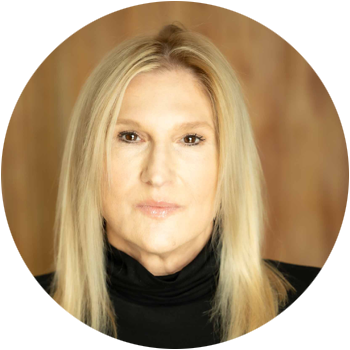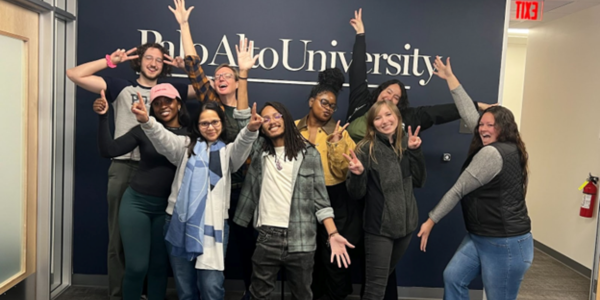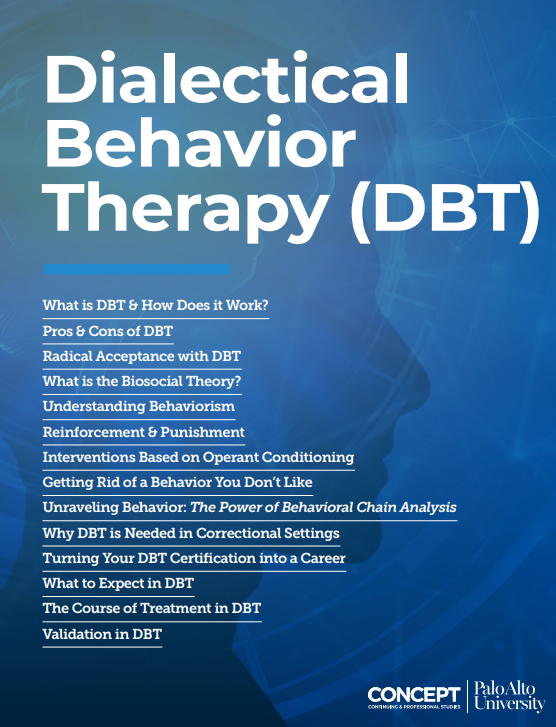Criminal Forensic Assessment Certificate
Establish crucial foundational and advanced criminal forensic assessment skills with a competitive credential. Advanced training in competency evaluations–the most common forensic evaluation in the nation–can empower enrollees to pursue careers in state systems and beyond. This certificate program spans 145 hours of content across 11 CE-earning programs.
What You Can Expect
This Certificate program includes 11 programs, with 70 hours of foundational training and 75 hours of specialized content. In this program, you will:
- Learn how to conduct criminal forensic evaluations.
- Assess issues such as competency, insanity, and mitigating factors in death penalty cases.
- Open the door to a fulfilling career in criminal justice forensics.
Presented By

David DeMatteo JD, PhD, ABPP (Forensic)

Randy Otto PhD, ABPP

Barry Rosenfeld PhD, ABPP

Itiel Dror

Michele Galietta PhD

Mark Cunningham PhD, ABPP

Patricia A. Zapf PhD
David DeMatteo, JD, PhD, ABPP (Forensic), is a Professor of Psychology and Professor of Law at Drexel University, and Director of Drexel’s JD/PhD Program in Law & Psychology. He has published 14 books, more than 100 peer-reviewed articles, and more than 50 book chapters in his areas of interest, which include mental health law, psychopathic personality, forensic mental health assessment, and diversion of justice-involved individuals. He is a former President of the American Psychology-Law Society (APA Division 41) and the American Board of Forensic Psychology. He is also a Fellow of the American Psychological Association (Divisions 1, 12, and 41) and the American Academy of Forensic Psychology. He routinely consults with city agencies, state agencies, policymakers, correctional facilities, and law enforcement. He conducts forensic mental health assessments of adults and adolescents on a variety of legal issues, and he has testified as an expert witness in state and federal courts. He is the Editor-in-Chief of Law and Human Behavior.
Dr. Otto is Director of Division of Forensic Behavioral Sciences at the University of New Mexico School of Medicine in Albuquerque, New Mexico. He is licensed to practice psychology in Florida and is board certified in clinical psychology and forensic psychology (ABPP). Dr. Otto has authored books on ethics in forensic psychology practice, forensic psychological assessment, report writing and expert testimony, and violence risk assessment. He currently serves as Executive Director of the American Board of Forensic Psychology. Dr. Otto’s research and writing focus on forensic psychological assessment. He has developed two psychological tests that are used in forensic assessment settings, and he has authored and edited books on forensic psychological evaluation, expert testimony and report writing, ethics in forensic psychology practice, assessment of trial competence, violence risk assessment and Florida mental health law. Dr. Otto has served as president of the American Psychology-Law Society, the American Board of Forensic Psychology, and the Board of Trustees of the American Board of Professional Psychology. He is a fellow of the American Psychological Association (Division 41) and has received awards for his professional contributions from the American Academy of Forensic Psychology, the American Psychology-Law Society, the Society for Personality Assessment, the New York State Psychological Association, the University of Nebraska, and the University of California, San Francisco. He currently serves as Executive Director of the American Board of Forensic Psychology. Dr. Otto shares that his daughter is continually amazed that some are actually willing to pay to hear him speak, when she regularly volunteers to pay to have him shut up. When not at work or with his wife and daughter, Dr. Otto is likely to be found at a poker table or on a motorcycle.
Barry Rosenfeld is a Professor of Psychology and Adjunct Professor of Law at Fordham University. He is currently the President of the American Psychology-Law Society and past president of the International Association of Forensic Mental Health Services. Dr. Rosenfeld has published more than 200 peer-reviewed journal articles and book chapters addressing a wide range of topics in psychology and law, including malingering, violence risk assessment, and cross-cultural issues in forensic assessment. He is also board certified in forensic psychology and conducts evaluations in both civil and criminal forensic settings, including individuals in diverse cultural settings both within and outside of the U.S.and Law, and the International Association of Forensic Mental Health Services.
Dr. Itiel Dror is a cognitive neuroscientist who received his Ph.D. at Harvard (1994) in the area of cognitive factors in human expert performance. Since his Ph.D. over twenty years ago, Dr. Dror has been researching this area, and has published over 100 peer-reviewed articles specifically looking at cognitive factors that mediate human expert performance. His insights and understanding of the human brain and cognitive system underpin the workshop. Without such deep knowledge, it is not possible to properly deliver a workshop on the ‘cognitive factors’. Dr. Dror has been working in the forensic domain for over a decade. In fact, he is the person who introduced the human and cognitive factors to the forensic community and has made this issue central in forensic science.
Over the last decade Dr. Dror has worked with a variety of forensic laboratories across the US, in which he has visited and shadowed examiners doing casework, reviewed SOPs and practices. Dr. Dror was the Chair of the OSAC Human Factor group (the new ‘SWGs’ organized under NIST/NIJ), which is responsible for the cognitive factor issues across all the OSAC forensic domains. The National Commission on Forensic Science has recognized Dr. Dror as the leader in this area and has asked him to present to the commission (as well as appointed him to their Human Factors subcommittee), as well as many other forensic bodies who have solicited Dr. Dror. The recommendations on cognitive and human factors of the NCFS and the NAS report, and other bodies is mainly based on the research of Dr. Dror. He is also a member of the AAAS (The American Association for the Advancement of Science) Advisory Committee on Forensic Science Assessment (a project in which the AAAS will conduct an analysis of the underlying scientific bases for the forensic tools and methods currently used).
Dr. Itiel Dror has a proven track record in successfully delivering workshops, specifically on ‘Cognitive Factors in Making Forensic Comparisons’, to dozens of forensic laboratories. He is the only person who has the combined cognitive and forensic expertise to deliver this training. His workshops on this specific issue have been delivered with great success to the FBI, LAPD, NYPD, SFPD, Boston PD, Kansas, and many other forensic laboratories across the US.
As the world leader in this area, Dr. Dror has also been commissioned to deliver this workshop in a variety of countries across the world (Australia, Finland, the Netherlands, Italy, Canada, as well as other countries –not to mention numerous police forces the UK). The success of his workshops and his training in this area has been recognized by the professional bodies: Dr. Dror has received the ABP Annual Award for 'Excellence in Training' for his workshops on cognitive factors in making forensic comparisons. The purpose of the award is to recognize excellence in demonstrating how applying an understanding of the science of human behaviour can impact and deliver practical value to organizations. The judges commented that Dr. Dror's workshops are: "Truly outstanding and inspiring", "A highly rigorous application of relevant theoretical frameworks", "Truly innovative, breaking entirely new ground in a most challenging context", "Internationally ground-breaking impact already being used around the world", "Entirely focused on application of conceptual models – underpinned by deep research", and "Impact is highly impressive".
Dr. Michele Galietta is an Associate Professor of Psychology at John Jay College of Criminal Justice, the City University of New York, where she served as Director of the Clinical Psychology Ph.D. Program from 2005-2013. Dr. Galietta is a researcher and clinician specializing in the training, adaptation, and dissemination of empirically-supported treatments to community and forensic/correctional settings. Her areas of clinical expertise include the assessment and treatment of trauma, self-harm, and suicide across the lifespan. Dr. Galietta has created specialized units and/or consulted to numerous civil, forensic, and correctional settings on risk assessment, risk management, behavioral interventions, and complex needs case formulation.
Dr. Galietta is regarded as a leading expert in the implementation of dialectical behavior therapy. Dr. Galietta is a certified DBT clinician. For over a decade, Dr. Galietta served as a principal trainer for Behavioral Tech, LLC, the company founded by the developer of DBT, Dr. Marsha Linehan. Dr. Galietta has consulted to over 100 agencies in the US and abroad on DBT initiatives. She has worked extensively in public sector settings, including state psychiatric hospitals and jails, prisons, and juvenile justice settings. She was principal investigator of an NIMH funded trial of DBT for individuals charged with interpersonal violence or stalking and authored the article, “Adapting DBT for the Treatment of Psychopathy.” She has conducted trainings for New York City Police Officers on mindfulness, communicating with mentally ill individuals, and hostage negotiations. Dr. Galietta has appeared on CNN and Court TV, and has been cited in the New York Times, the Washington Post, Time Magazine, and other media outlets.
Mark D. Cunningham, Ph.D., ABPP is a Seattle-based, board-certified clinical and forensic psychologist, researcher, and prolific scholar, authoring more than 60 publications that have been cited an aggregate of 1800+ times in the scholarly literature, as well as by SCOTUS (Moore v. Texas, 2017) and in amici briefs. He is routinely engaged to provide peer-review for scientific journals in criminology, criminal justice, forensic psychology, and professional psychology, with Publons ranking his peer reviewer activity at the 97th percentile. Dr. Cunningham’s forensic practice is national in scope and he is licensed in 12 states. He has been involved in 60+ Atkins determinations and has several publications on this topic. He has provided more than 100 scholarly symposium, workshops, CE, and CLE presentations at regional and national conferences.
Dr. Cunningham’s research and practice have garnered regional, national, and international recognition. These include: the 2021 American Academy of Forensic Psychology Award for Distinguished Contributions to Forensic Psychology; the 2019 American Correctional Association Peter P. Lejins Research Award; a 2017 commendation by the international John Maddox Prize committee; the 2012 National Register of Health Service Psychologists A. M. Wellner, Ph.D. Lifetime Achievement Award; the 2006 American Psychological Association Award for Distinguished Contribution to Research in Public Policy; the 2005 Texas Psychological Association Award for Outstanding Contribution to Science; and 2006 election as a Fellow of the American Psychological Association (Division 41, Psychology-Law Society). While serving as a naval officer and clinical psychologist at the Naval Submarine Medical Center early in his career, Dr. Cunningham was decorated with a Navy Commendation Medal for meritorious service.
Dr. Cunningham earned his doctorate in clinical psychology at Oklahoma State University and did his clinical psychology internship at the National Naval Medical Center. He completed a two-year NIMH-sponsored post-doctoral program at Yale University School of Medicine and was honored as the outstanding trainee.
Dr. Patricia A. Zapf, Ph.D. is Vice President for Continuing & Professional Studies at Palo Alto University (PAU). Prior to coming to PAU, she was a professor of psychology at John Jay College of Criminal Justice, City University of New York (CUNY), for 16 years, during which time she was instrumental in the development of a new doctoral program in clinical psychology with an emphasis in forensic psychology and served as the program’s first Director of Clinical Training. Prior to her time at CUNY, she was on the psychology and law faculty at the University of Alabama. In 2009, Dr. Zapf founded CONCEPT Professional Training with the mission of elevating the level of practice in psychology and related professions. In 2018, Dr. Zapf brought CONCEPT Professional Training to Palo Alto University to further its mission of continuing and professional studies in partnership with Palo Alto University. Dr. Zapf is a past President of the American Psychology-Law Society (AP-LS; Division 41 of the American Psychological Association). In 2006, in recognition of her outstanding contributions to the science and profession of forensic psychology, she was named a Fellow of the American Psychological Association (APA) and a Distinguished Member of the American Psychology-Law Society (AP-LS). She has served on the board of directors for the International Association of Forensic Mental Health Services, as an associate editor for Law and Human Behavior and as editor of the American Psychology-Law Society book series, as well as the International Perspectives on Forensic Mental Health book series. She has published 9 books and manuals and over 100 articles and chapters, mainly on the assessment of criminal competencies and forensic evaluation. In addition to her research, she serves as a consultant to various criminal justice and policy organizations and has a private practice in forensic assessment. She has conducted over 2500 forensic evaluations in both the United States and Canada and has served as an expert witness in a number of cases. Dr. Zapf is the author of Best Practices in Forensic Mental Health Assessment: Evaluation of Competency to Stand Trial; editor of Forensic Assessments in Criminal and Civil Law: A Handbook for Lawyers; and Editor-in-Chief of the APA Handbook of Forensic Psychology. She served on the National Judicial College’s Mental Competency—Best Practices Model panel of experts and travels throughout the United States and Internationally to train legal and mental health professionals on best practices in forensic evaluation. Dr. Zapf has published 8 books and manuals and over 85 articles and chapters, mainly on the assessment and conceptualization of criminal competencies. She was appointed Fellow of the American Psychological Association and Distinguished Member of the American Psychology-Law Society in 2006 for outstanding contributions to the field of law and psychology for her work in competency evaluation. In addition to her research, she serves as a consultant to various criminal justice and policy organizations and has a private practice in forensic assessment. She has conducted over 2500 forensic evaluations in both the United States and Canada and has served as an expert witness in a number of cases, including the competency hearing of Jose Padilla. Dr. Zapf is the author of Best Practices in Forensic Mental Health Assessment: Evaluation of Competency to Stand Trial; editor of Forensic Assessments in Criminal and Civil Law: A Handbook for Lawyers; and Editor-in-Chief of the APA Handbook of Forensic Psychology. She served on the National Judicial College’s Mental Competency—Best Practices Model panel of experts and travels throughout the United States and Internationally to train legal and mental health professionals on best practices in forensic evaluation.
Criminal Forensic Assessment Certificate
Foundational Trainings
You Will Learn To:
1
Assess issues of competency, insanity, and mitigating factors in death penalty cases.
2
Describe the admissibility standards for expert evidence articulated by the Supreme Court of the United States.
3
Describe a 7-step problem-solving process to respond to ethical/legal dilemmas.
4
Describe the principles of cultural competence in psychological evaluations.
5
Describe background information regarding the human mind and cognitive system.
6
Describe the rationale for Forensic Case Formulation.
7
Describe the various functions that reports and affidavits which summarize forensic evaluations serve.
8
Describe the components/qualities of effective communication generally, and effective testimony specifically.
9
Describe the differences between feigning, malingering, and insufficient effort in the context of psychological assessment.
10
Describe important legal cases that deal with issues relevant to the interpretation of adjudicative competence standards and statutes.
11
Describe best practices and the empirical basis for mental state at the time of the offense evaluations.
12
Describe the contrasting theories of the state and defense at capital sentencing and how these are operationalized in evidence and argument, and much more.
Let Our Team Build the Right Training for Your Organization
Meet 1:1 with Dan, Mel or Patty so they can hear your unique workplace training needs. Tell us about your organization and your staff–and what you need to deliver on your goals and elevate your team. In partnership with our product team and presenters we will customize a training program to deliver the skills and knowledge you need–on your budget and timeline.
Book a Call
We Train Organizations of all Sizes




Hear from Program Participants
"Some of the most amazing experts in the field"
“The programs are staffed by some of the most amazing experts in the field, and they made themselves available to me if I followed-up with a question”
Dr. Abraham Loebenstein
-Ph.D, Psychologist PSY15631
"I don’t know that I would have passed my boards without CONCEPT"
“Having the downloadable source materials to study from was a huge advantage for my board certification tests, since I could review the content as many times as I needed. I don’t know that I would have passed my boards without CONCEPT, since much of what I reviewed in those presentations were covered in my exam.”

Learn How to Improve Your Level of Care with DBT
Newly updated in 2025, this comprehensive eBook explores essential and advanced DBT topics, behavior modification techniques and examples of applied principles in clinical scenarios.
Based on a compilation of three of our most popular eBooks, this updated version includes both new and advanced DBT content and expands on key training insights, including complex topics like the biosocial theory and adapting DBT for correctional settings.

